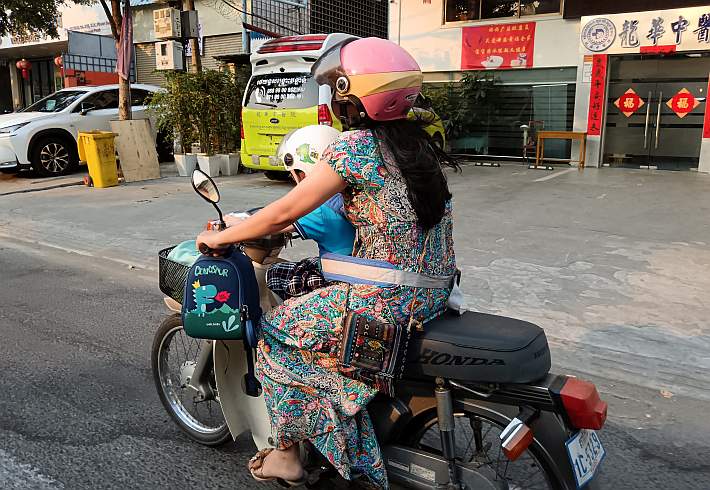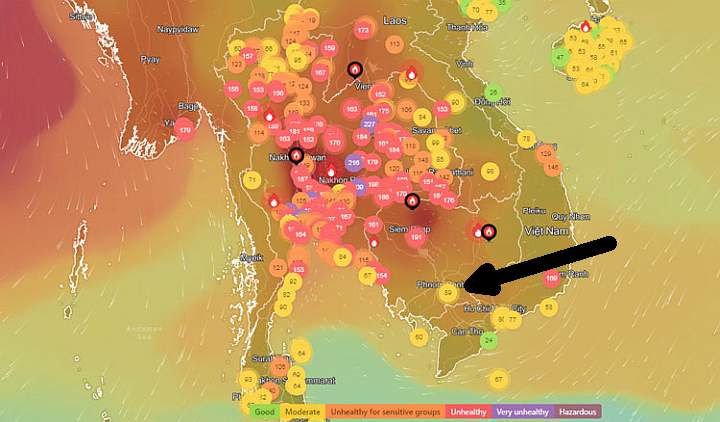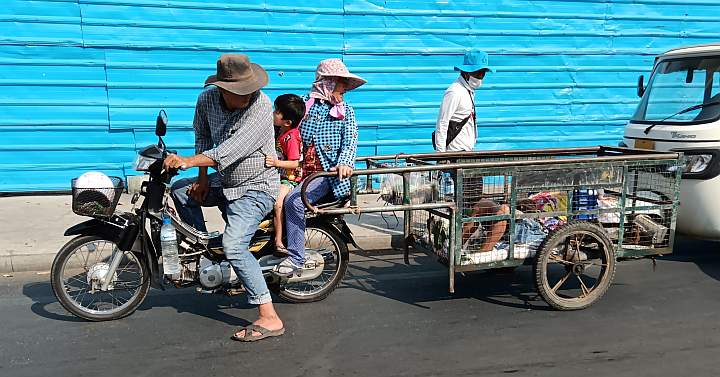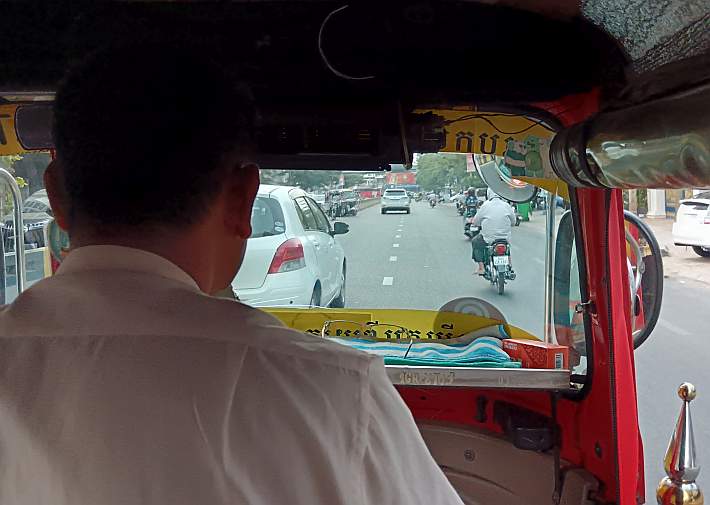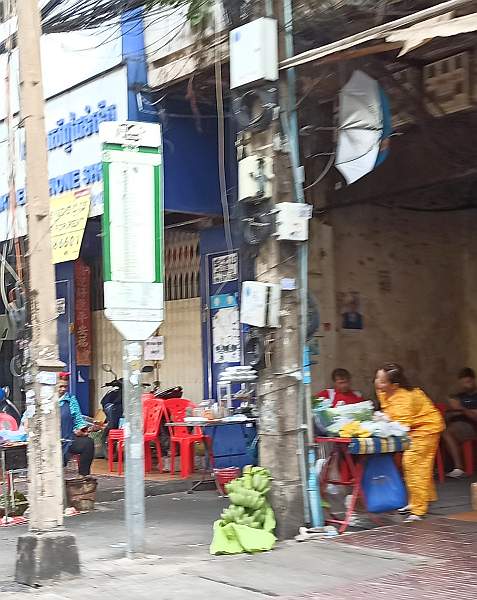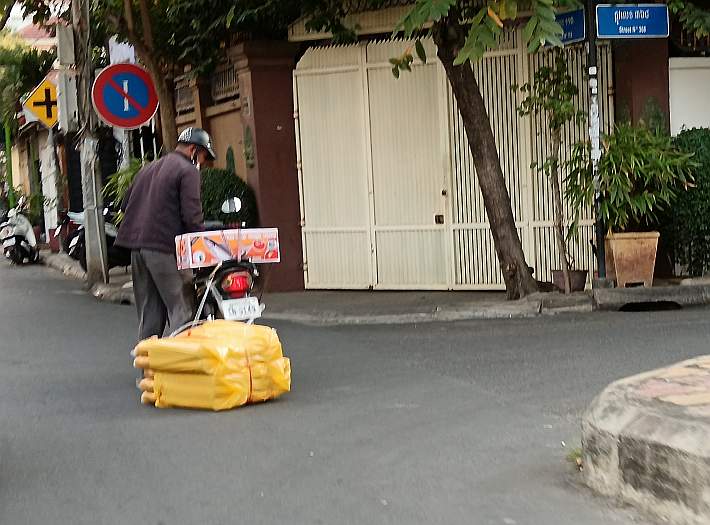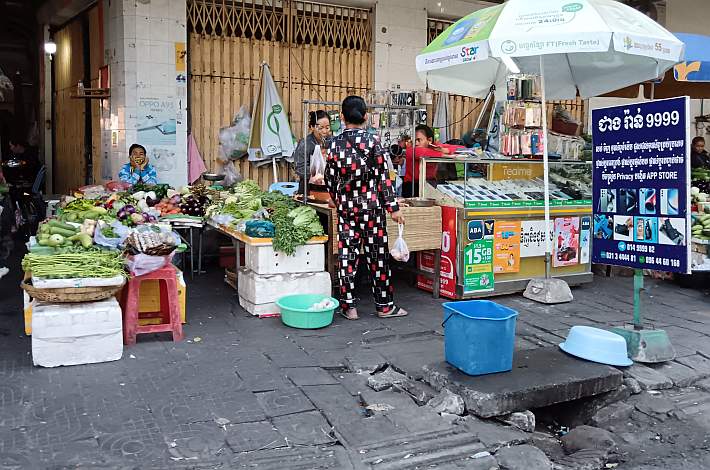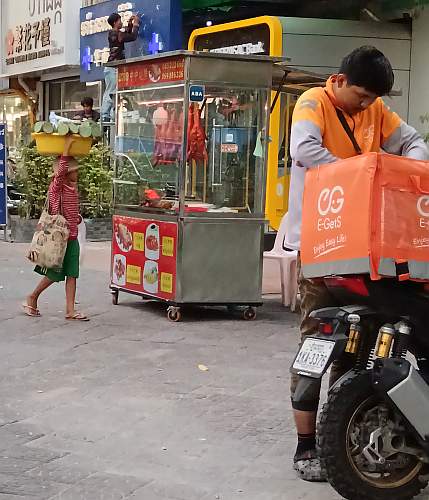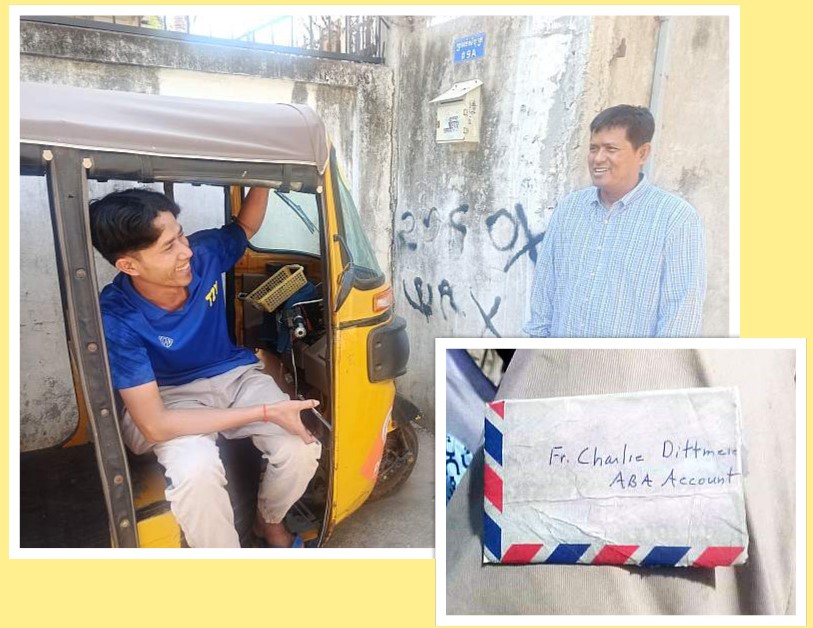
It is risky in Cambodia for a foreigner to open a bank account with only one name on it. If the person dies or is incapacitated or needs to leave the country quickly, it is almost impossible to recover the money from that account. As a back up, when I set up my ABA bank account, I got a debit card for it and gave it to Maryknoll Sr. Regina with the PIN. In case something happened to me, she could withdraw the money from ATMs.
I never used the debit card and when Regina left, she returned it to me. Recently I wondered where it was and when I found it, I saw it had expired. I put it in my pocket yesterday to go to ABA to renew it, but later in the day it wasn’t in my pocket.
Arriving at home, it worried me that someone could find it and try to use it. It was expired but it still worried me so I went to an ABA branch (they are open 8:00 AM to 8:00 PM every day in Cambodia!) and canceled that card and got a new one.
A few hours later I got a message from the DDP director. Our former social worker called him to say a tuk-tuk driver had found my card and wanted to give it back. And that’s what the driver did this morning. In the photo he is talking to our DDP guard.
I couldn’t understand all his Khmer but he seems to have found it in the street. It had my name on it but how he found out who I was and how to contact me, I still don’t know!
